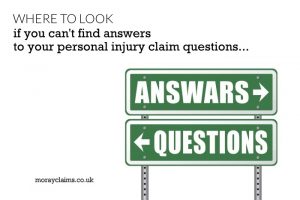We’ve covered the topic of Before the Event insurance in other articles. Before the Event (BTE) Insurance is legal expenses insurance you can choose to take out. It means that if, for example, you are injured in an accident, the insurance covers the cost of legal advice on the prospects of claiming compensation. It’s an alternative to other funding methods such as no win-no fee and legal aid. One of the friction points of BTE Insurance is that you usually have to use the BTE insurer’s own panel solicitor for legal advice in the early stages. The justification most commonly given is that BTE insurers prefer to use their own panel solicitors for valid commercial and quality-control reasons. You can’t use, say, your own local, specialist solicitor for advice under the policy in the initial stages of advice. (You can still use them for advice, it just won’t be under the policy - which may not be a problem, in fact). The situation changes if it becomes necessary to raise a court Continue Reading
Where to look if you can’t find answers to your personal injury claim questions
Typos in stock photographs can be good inspiration. How annoying would it be if you could only find “answars” and no answers? And it turns out that, once you start looking for them, spelling mistakes in premium photographs keep turning up. If you don’t manage to “upgrade your life”, take heart from the fact that it might still be possible to “uprgade your life”. The above photo is marketed as “Upgrade your life”. So someone wrote this, someone photographed it and someone uploaded it to a website for sale. None of them noticed the jumbled up letters? Not seeing the wood for the trees is a problem for anyone who puts information on a website in the hope of helping others. Another aspect of this is the “curse of knowledge”, where you assume that your reader’s understanding of your topic is greater than it really is. If you pitch the level too high, your readers will leave before they’re much past the headline. On this website, we try to answer questions at a Continue Reading
5 ways we can better protect injury victims through improved regulation of legal services in Scotland
We want the law to offer better protection to consumers, right? An independent review of the regulation of legal services in Scotland is under way. The Minister of Community Safety and Legal Affairs, Annabelle Ewing, announced the review on 25 April 2017. The idea is get recommendations to reform and update the framework which regulates who can provide legal services and, for example, what complaints procedures should be available. In announcing the independent review, the Minister emphasised the main objective as placing “consumer interests firmly at the heart of any system of regulation, including the competitive provision of legal services.” While there is competition across the board to win business providing legal services to consumers, personal injury is one of the most competitive areas. In 2016, for example, a study by the online magazine, Search Engine Watch, worked out the UK’s most expensive Google Adwords. (These are the adverts at the top of any search Continue Reading
What are the benefits of a solicitor handling your personal injury claim (compared to a claims management company)?
In this article, we are considering the situation where you are making the decision between instructing a solicitor to represent your interests in a personal injury compensation claim and instructing someone else – such as a claims management company. We are not considering the situation where you are deciding between having a solicitor and representing your own interests. Grigor & Young LLP / Moray Claims have other articles about the pitfalls of a DIY personal injury claim and the perils of negotiating directly with the third party insurers. The 3 factors we want to highlight here are certainty, insurance and expertise. First of all, certainty. 1. It gives you certainty about who you are dealing with. Only those who undertake wide-ranging education, training and ongoing “Continuing Professional Development” are permitted to practise as a solicitor. At the moment, claims management companies are not regulated in Scotland. Anyone can set up a claims management Continue Reading



